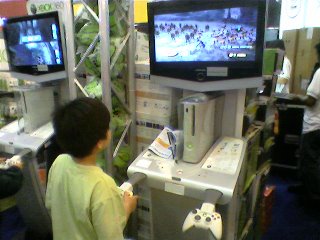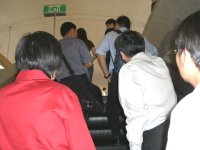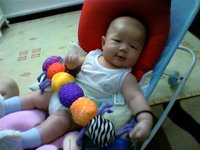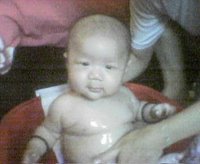This is the fourth reflection I am writing really for PDDP (but I have numbered it differently :)
I will not really go into details as to the induction programme (as I have already shared with the branch my experience being a HQ officer). I will however, devote some time to reflecting about CoPs.
Communities of Practice (CoPs) is going to be the one big thing for me because I am curious as to how this whole thing will start off and then function on its own as an organism that seeks (and requires) constant growth and renewal.
The compressed slides given to us really did not do justice to the very comprehensive presentation given by Dr. Hung during our lunch time. He was able to keep me interested throughout his talk and actually made me understand how a CoP should look like (with all the interactions taking place between all the various participants).
It would not be meaningful for me to regurgitate the information gleaned from the slides but one key-takeaway I have is that there are 3 kinds of communities that could be formed:
1. Task-based learning communities
2. Practice-based learning communities
3. Knowledge-based learning communities
It would seem to me the third one is the most difficult to achieve but I think with evolution and the right guidance given, a task-based learning community can become a practice-based one to finally a knowledge-based one.
*but I could be wrong here*As the slides were too "compressed" for me to recollect what Dr Hung has talked about, I went to the internet and found this article (which I must emphasize TO ME) useful, even though the context is more for business-related CoPs. But the concept should cut across all domains - education, business etc.A few things that went through my mind while I was reading the article were:
1. Dr Hung's slides sort of provide the inner workings of a CoP and what we can do to design and sustain one.
2. This article gives a very macro view and offers an interesting concept of interactions at the boundaries (between CoPs). I realise Dr Hung's slides provide this idea but this article gives me a better understanding what it really means.
3. A general progression as to the kinds of activities and involvement that occur within a CoP is given (which I wonder if it ties in with the 3 kinds of communities that Dr Hung mentioned in his slides)...*still wondering*
A quote which I found good:
"CoPs develop around things that matter to people...Even when a community's actions conform to an external mandate, it is the community-not the mandate-that produces the practice."*pondering* Are we the mandate? *haha*
What I found useful is the distinction made between CoPs, Teams, Tasks and Network. This might give us a better understanding as to what a CoP really is.
Another quote which I found good:
"People belong to communities of practice at the same time as they belong to other organizational structures. In their business units, they shape the organization. In their teams, they take care of projects. In their networks, they form relationships. And in their communities of practice, they develop the knowledge that lets them do these other tasks. This informal fabric of communities and shared practices makes the official organization effective and, indeed, possible."Don't you find this quote sort of describes what we are doing now? Is this case, we are actually a CoP right, seeking to find out more about CoPs *haha*
Another thing I learnt from this article is that leadership is important to develop and nurture CoPs. There are various forms of leadership:
a. inspirational
b. day-to-day
c. institutional etc *I shall not go into the details now but if you found this useful, go and read the article :)*
Some ways to nurture CoPs are:
1. legitimizing participation
2. negotiating strategic context - do organizations have a clear direction?
3. being attuned to real practice (which I think could be linked to engaged learning)
4. fine-tuning the organization - any recognition? what repercussions might result?
5. providing support - perhaps where we really come in as a division / branch / section?
I think I know now that CoPs are theoretically, beings with identities that evolve with time and that it is really not that easy a task to sustain one as a CoP can occur naturally and unknowingly. Perhaps our task is then to go and seek existing CoPs-in-the-making and see how we can help them get a heartbeat (formally I think).
That, (un)fortunately, is something I don't know how it can be done :p










